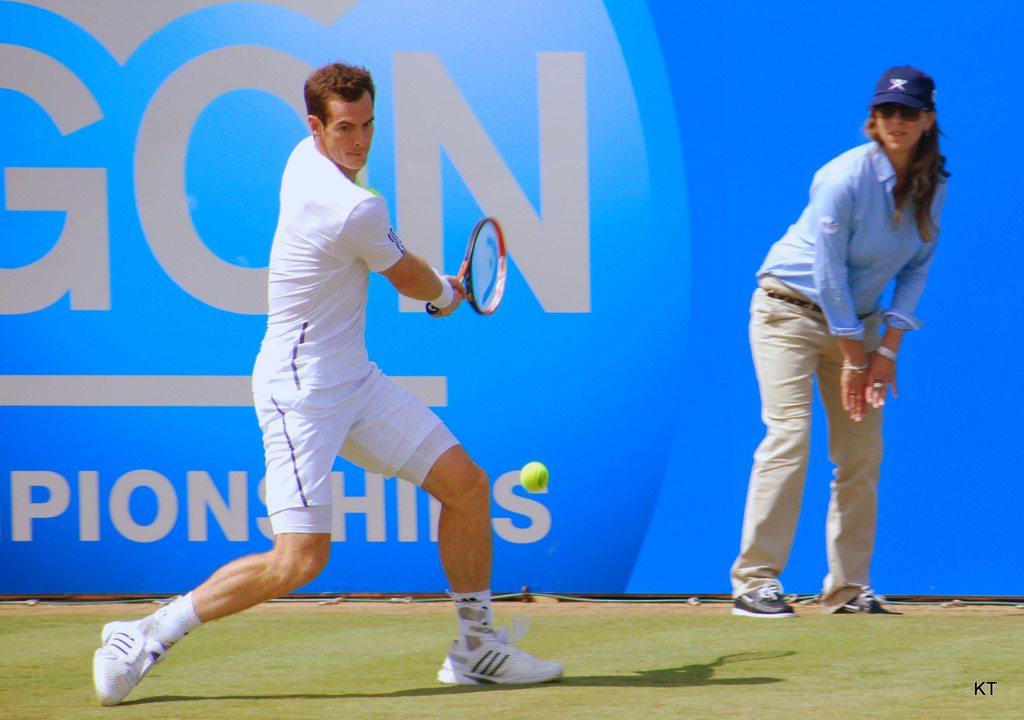Making the most of Murray: do we under-appreciate Andy?
A few weeks ago I was making small talk with a friend before an exam. The conversation drifted on to the French Open, which was approaching the quarter final stage. “I want Djokovic to win”, said my friend. “If he doesn’t, I’ll support David Goffin.” What about Andy Murray, I quickly replied. “I’m not a big Murray fan”, was the response. Though this was only one person’s opinion, it struck me that it highlighted a wider apathy among the English public towards Britain’s most successful post-war tennis player.
This attitude can be traced back to Murray’s breakthrough into the national consciousness in 2006. For a 19-year-old making only his second appearance at Wimbledon, reaching the fourth round at the All England Club was a huge achievement – especially as it included the vanquishing of then-two time finalist Andy Roddick along the way. The stage was set for the country’s tennis fans to fall in love with Murray, but a harmless, yet ill-judged comment created a PR disaster. Following jibes about the Scottish football team’s failure to qualify for that summer’s world cup, Murray was asked who he would be supporting. “Whoever England are playing”, he joked. Within seconds, Murray’s standing among the English public had fallen significantly and has arguably never fully recovered.
Critics point to a player that can be petulant on court, a characteristic that has mellowed with age but not disappeared completely.
That one comment fuelled an image that Murray has found extremely difficult to shake off. Critics point to a player that can be petulant on court, a characteristic that has mellowed with age but not disappeared completely. Away from tennis, Murray is perhaps unfairly portrayed as possessing a dreary personality. This is largely down to his straight-batted approach when talking to the media, despite the fact that you would struggle to find many players who treat the press any differently. As a result, many English tennis fans continue to favour Federer, Nadal or Djokovic over Murray when it comes to Grand Slams.
Even Murray’s contribution to the glorious sporting summer of 2012 only provided short-term respite. His tearful interview following defeat to Federer in the Wimbledon final showed a side that we hadn’t seen before. A month later, the vociferous backing that roared on every British Olympian fired Murray to a gold medal. Fast forward another month and he had secured his maiden grand slam at the US Open, Britain’s first for 35 years. This wave of success gave Murray the momentum to become the first British male to win Wimbledon in 77 years in 2013. Six months later, he won his first BBC Sports Personality of the Year – the clearest indication yet that the British public were warming to him.
A man who is arguably Britain’s greatest active sportsperson shouldn’t be subject to the old joke that he is British if he wins but Scottish if he loses.
Yet there is still something missing. Even since hauling Britain to the Davis Cup and being voted Sports Personality for the second time in 2015, Murray continues to lack the overall support his achievements deserve. At its most basic level, a man who is arguably Britain’s greatest active sportsperson shouldn’t be subject to the old joke that he is British if he wins but Scottish if he loses.
This isn’t to say that we should only focus on Murray and ignore the brilliance of his rivals. Nevertheless, we should appreciate how special it is that one of our own is able to compete with – and sometimes beat – the very best. Players of Murray’s talent don’t come around too often in this country. We waited 77 years for a British men’s singles champion at Wimbledon – who’s to say it wont be another 77 years until the next one?

Comments